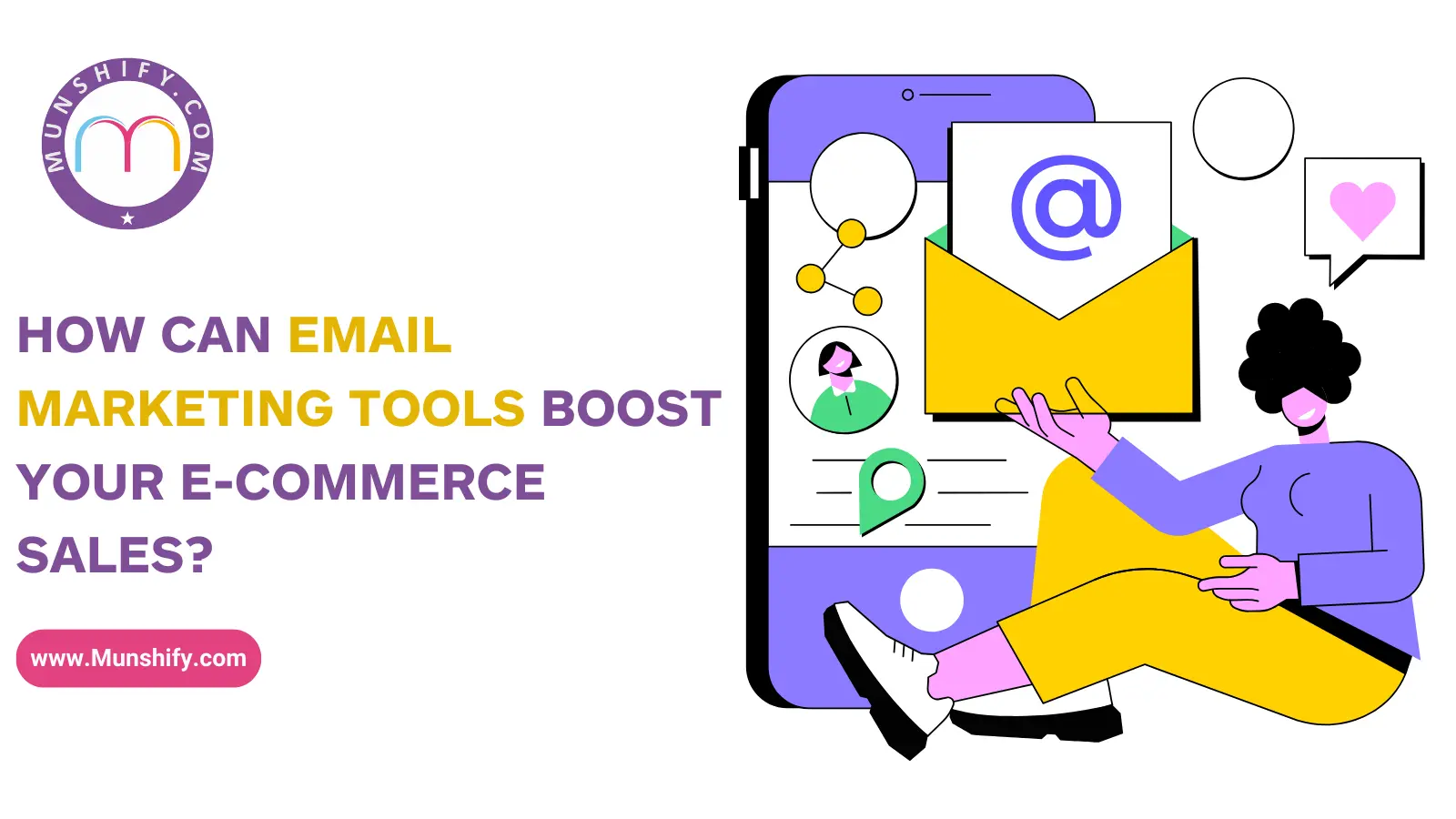In today’s fast-paced digital world, e-commerce businesses are constantly seeking effective strategies to drive sales and engage customers. Among the plethora of digital marketing channels available, email marketing remains a powerful and cost-effective tool for e-commerce businesses. With the right Email Marketing Tools, businesses can boost their sales, enhance customer relationships, and achieve remarkable results. This blog explores how Email Marketing Tools can significantly impact your e-commerce sales and provide practical insights on maximizing their potential.
Table of Content
- Understanding the Role of Email Marketing in E-commerce
- Choosing the Right Email Marketing Tool
- Automation and Personalization: The Power of Email Marketing Tools
- Measuring Success: Key Metrics and Analytics
Understanding the Role of Email Marketing in E-commerce
Email marketing plays a vital role in e-commerce because it enables businesses to communicate directly with their target audience. It serves as a direct line of communication, allowing businesses to deliver personalized messages, promotional offers, and updates about products or services. Unlike other digital marketing channels, email marketing allows businesses to connect with customers in a personalized and targeted manner.
The key advantage of email marketing lies in its ability to nurture and maintain relationships with customers. By sending relevant and valuable content, businesses can keep customers engaged and encourage repeat purchases. Additionally, email marketing provides an opportunity to upsell and cross-sell products, thereby increasing the average order value and boosting overall sales.
Choosing the Right Email Marketing Tool
Selecting the right Email Marketing Platforms is crucial for the success of your e-commerce email marketing strategy. With numerous options available, evaluating various tools based on your specific business needs is essential. Here are some key factors to consider when choosing an email marketing tool:
- Ease of Use: Look for a tool with an intuitive interface and user-friendly features. A tool that simplifies the email creation process and offers drag-and-drop functionality can save you time and effort.
- Automation Capabilities: Automation is a game-changer in email marketing. Choose a tool that allows you to automate your email campaigns, trigger personalized emails based on customer behavior, and schedule emails in advance. Automation not only saves time but also ensures timely and relevant communication with your audience.
- Segmentation and Personalization: Effective email marketing tools relies on segmenting your audience and delivering personalized content. Look for a tool that offers robust segmentation features, allowing you to target specific customer segments based on demographics, purchase history, and behavior. Personalization features such as dynamic content and personalized subject lines can significantly enhance engagement and drive conversions.
- Analytics and Reporting: A good email marketing tool should provide comprehensive analytics and reporting features. Look for tools that offer insights into open rates, click-through rates, conversion rates, and other key metrics. Analyzing these metrics can help you measure the effectiveness of your campaigns and make data-driven decisions to optimize your strategy.
- Integration Options: Consider whether the email marketing tools integrates seamlessly with your existing e-commerce platform or CRM system. Integration can streamline your processes and enable you to leverage customer data effectively.
- Scalability: As your e-commerce business grows, your email marketing needs may evolve. Choose a tool that can scale with your business and accommodate your future requirements.
Know about Unlocking Time-Saving Features in Social Media Marketing Tools
Automation and Personalization: The Power of Email Marketing Tools
Automation and personalization are two key elements that make Email Marketing Tools a powerful asset for e-commerce businesses. These features allow you to create highly targeted and personalized campaigns that resonate with your audience. Here’s how automation and personalization can transform your email marketing strategy:
1. Automation
Automation enables you to set up email workflows that trigger based on specific customer actions or events. For example, you can automate welcome emails for new subscribers, abandoned cart reminders for customers who haven’t completed their purchase, and post-purchase follow-ups to encourage repeat purchases. By automating these processes, you can deliver timely and relevant messages to your audience, enhancing their experience and increasing the likelihood of conversion.
Additionally, automation allows you to nurture leads and guide them through the sales funnel. You can create drip campaigns that gradually introduce your brand, educate potential customers about your products, and build trust. With automated workflows, you can deliver consistent and targeted messages without manual intervention, saving time and resources.
2. Personalization
Personalization is the key to capturing your audience’s attention and driving engagement. Email Marketing Tools offer a range of personalization features that allow you to tailor your messages to individual customers. By leveraging customer data such as purchase history, browsing behavior, and demographics, you can create personalized product recommendations, special offers, and exclusive discounts.
Personalized subject lines, dynamic content, and product recommendations based on past purchases can significantly improve open rates and click-through rates. Customers are more likely to engage with emails that speak directly to their needs and preferences. Personalization creates a sense of connection and relevance, making customers feel valued and understood.
Measuring Success: Key Metrics and Analytics
To determine the success of your email marketing campaigns, it’s essential to track key metrics and analyze the performance of your emails. Email Marketing Tools provide robust analytics and reporting features that offer valuable insights into your campaign’s effectiveness. Here are some key metrics to monitor:
- Open Rate: The percentage of recipients who open your emails. A high open rate indicates that your subject lines and sender names are compelling and engaging.
- Click-Through Rate (CTR): The percentage of recipients who click on a link within your email. A high CTR indicates your email content is engaging and encourages recipients to act.
- Conversion Rate: The percentage of recipients who complete a desired action, such as purchasing or signing up for a newsletter. A high conversion rate indicates that your emails drive meaningful results.
- Bounce Rate: The percentage of emails that fail to be delivered to recipients’ inboxes can significantly impact your campaign’s success. Therefore, a high bounce rate may indicate issues with your email list quality or deliverability.
- Unsubscribe Rate: The percentage of recipients who opt out of receiving future emails. Monitoring unsubscribe rates can help you identify any issues with your content or frequency.
By analyzing these metrics, you can identify areas for improvement and make data-driven decisions to optimize your email marketing strategy. Experiment with different subject lines, content formats, and CTAs to find what resonates best with your audience.
In conclusion, Munshify Email Marketing Tools are invaluable for e-commerce businesses looking to boost sales and engage customers. By choosing the right tools, leveraging automation and personalization, and measuring key metrics, you can unlock the full potential of email marketing and achieve remarkable results. Invest in the right Email Marketing Tools today and take your e-commerce sales to new heights. With the right strategy and tools, you can create impactful and personalized email campaigns that drive conversions and foster long-term customer relationships.
Know more about ours IT Consulting Services.



